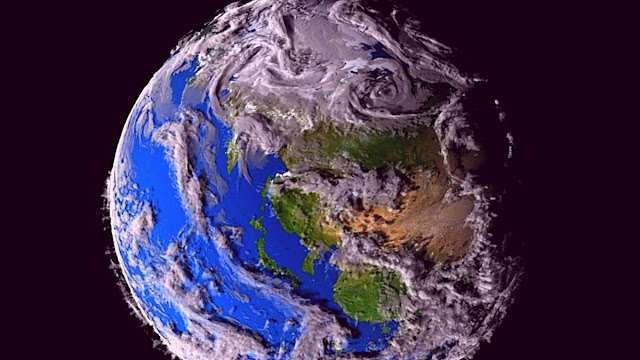
Introduction:
In a provocative and thought-provoking theory, a group of astrobiologists has suggested that Planet Earth itself might exhibit characteristics of an intelligent being. This hypothesis, which challenges traditional views of planetary science and ecology, posits that Earth may possess a form of collective intelligence that arises from the complex interplay of its biological and geological systems. Let’s explore this groundbreaking idea and its implications for our understanding of life and intelligence.
The Gaia Hypothesis Revisited:
The notion that Earth could be viewed as a living entity is not entirely new. In the 1970s, scientists James Lovelock and Lynn Margulis proposed the Gaia Hypothesis, which suggests that Earth’s biological and physical components interact in a complex, self-regulating system that maintains conditions conducive to life. The new theory put forth by astrobiologists builds upon this idea, proposing that Earth’s systems collectively exhibit a form of intelligence.
Defining Planetary Intelligence:
Planetary intelligence, as defined by proponents of this theory, refers to the ability of a planet’s systems to interact in a way that promotes stability and sustainability. This intelligence is not akin to human cognition but is instead a form of emergent intelligence arising from the interactions between Earth’s biosphere, atmosphere, hydrosphere, and geosphere.
Evidence of Intelligent Behavior:
Astrobiologists point to several examples that might indicate Earth’s intelligent behavior. These include the regulation of atmospheric gases to maintain a stable climate, the cycling of nutrients through ecosystems, and the planet’s ability to recover from disruptions such as asteroid impacts and mass extinctions. These processes suggest a level of coordination and adaptation that could be interpreted as a form of collective intelligence.
Implications for the Search for Extraterrestrial Life:
If Earth itself can be considered an intelligent being, this has profound implications for the search for extraterrestrial life. It expands the definition of intelligence beyond individual organisms to include planetary systems. This perspective encourages scientists to look for signs of planetary-scale intelligence when studying exoplanets and assessing their potential habitability.
Critics and Counterarguments:
The idea that Earth might be an intelligent being is not without its critics. Some scientists argue that attributing intelligence to planetary systems anthropomorphizes natural processes and lacks empirical evidence. They caution against conflating complex, self-regulating systems with intelligence, which traditionally requires conscious thought and decision-making.
Future Research Directions:
To further explore this intriguing hypothesis, researchers are examining Earth’s systems through the lens of complexity science and systems theory. They aim to identify patterns and behaviors that might indicate emergent intelligence. Additionally, advancements in Earth observation technologies and computational modeling could provide new insights into the interconnectedness and adaptive capabilities of Earth’s systems.
Conclusion:
The proposal that Planet Earth itself might be an intelligent being challenges our traditional views of intelligence and life. While the idea remains controversial and speculative, it invites us to reconsider the complexity and interconnectedness of the natural world. As astrobiologists continue to explore this hypothesis, we may gain new perspectives on the nature of intelligence and the remarkable dynamics of our home planet. Whether or not Earth can be deemed intelligent, this theory underscores the intricate balance of life and the environment that sustains it, highlighting the profound and delicate interdependence of all Earth’s systems.
Reference(s): International Journal of Astrobiology
